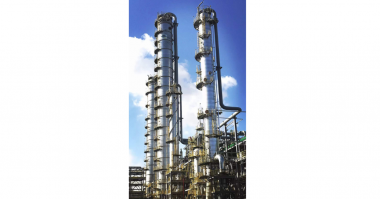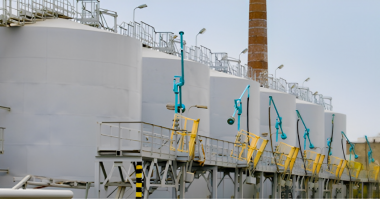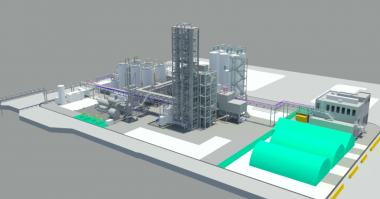Contributor: Triangle Fluid Controls
The chemical industry creates an immense variety of products that affect virtually every aspect of our lives and uses a wide range of raw materials, from air and minerals to oil. With increasing competition worldwide, innovation remains crucial in finding new ways for this industry to satisfy its increasingly sophisticated, demanding and environmentally-conscious consumers.
The products of the chemical industry can be divided into 3 categories:
Basic chemicals
Chemicals derived from oil – petrochemicals polymers and basic inorganics (and increasingly from coal and biomass)
Basic chemicals, produced in large quantities, are mainly sold within the chemical industry and to other industries before becoming products for the general consumer. For example, ethanoic acid is sold on to make esters, much of which in turn is sold to make paints.
Petrochemicals and polymers
The hydrocarbons in crude oil and gas are first separated using their differences in boiling point, then converted to hydrocarbons that are more useful to the chemical industry, such as branched chain alkanes, alkenes and aromatic hydrocarbons. In turn, these hydrocarbons are converted into a very wide range of basic chemicals which are immediately useful (petrol, ethanol) or are subjected to further reactions to produce a useful end product eg. fertilizers.
Basic inorganics
These are relatively low-cost chemicals used throughout manufacturing and agriculture. They are produced in very large amounts and include chlorine, sodium hydroxide, sulfuric and nitric acids and chemicals for fertilizers. As with petrochemicals, many countries are now able to produce them at a lower cost, creating competition but still meeting ever more stringent environmental and safety standards.
Speciality chemicals
Covers a wide variety of chemicals from crop protection, paints and inks, to textiles, paper and engineering. New products are constantly being created to meet both customer needs and new environmental regulations. An everyday example is household paints which have evolved from being organic solvent-based to being water-based. Another is the latest ink developed for ink-jet printers.
Consumer chemicals
Consumer chemicals are sold directly to the public. They can include, detergents, soaps and other toiletries. The search for more effective and environmentally safe detergents has increased over the last 20 years, particularly in finding surfactants that are capable of cleaning anything from sensitive skin to large industrial plants as well as producing a wider range of synthetic chemicals for toiletries, cosmetics and fragrances.
Safety
Safety must be at the top of the chemical industry’s agenda and for good reason. Many of its products are potentially hazardous at some stage during their manufacture and transport. These chemicals may be solids, liquids or gases, flammable, explosive, corrosive and/or toxic. Manufacturing processes frequently involve high temperatures, high pressures, and reactions which can be dangerous unless carefully controlled. Because of this, the industry operates within the safety limits demanded by national and international legislation.
Environmental Regulations
There are serious concerns about the potential impact of certain manufactured chemicals on living organisms, and on the natural environment. These concerns include air, land and sea pollution, global warming and climate change, ozone depletion of the upper atmosphere and acid rain.
The chemical industry has a world-wide initiative entitled Responsible Care. It began in Canada in 1984 and is practiced now in over 60 countries. Its guidelines are to:
- Continuously improve the environmental, health, safety and security knowledge and performance of our technologies, processes and products over their life cycles so as to avoid harm to people and the environment.
- Use resources efficiently and minimize waste.
- Report openly on performance, achievements and shortcomings.
- Listen, engage and work with people to understand and address their concerns and expectations.
- Cooperate with governments and organizations in the development and implementation of effective regulations and standards, and to meet or go beyond them.
- Provide help and advice to foster the responsible management of chemicals by all those who manage and use them along the product chain.
Only a small proportion of chemical wastes are toxic or hazardous. Most of these, together with materials which resist natural breakdown, are incinerated at high temperature. Whenever possible, the waste itself provides the fuel for this process. The gases produced are thoroughly cleaned and ‘scrubbed’ before release into the atmosphere, leaving only ash for disposal.
What are the challenges for the chemical industry today?
The challenge for most companies is to cut their costs while ensuring that they conform to the best practice in protecting the environment. As oil and natural gas become ever scarcer and more expensive, chemists are searching for replacements for these natural resources, so they can continue to help society to maintain and improve its standard of living and do so in a sustainable way.





Comments